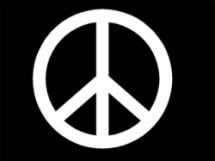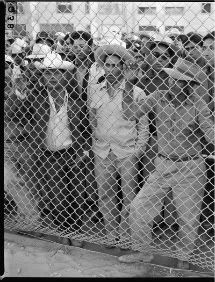I am half Filipino, quarter Black, and quarter Hispanic but as far back as I can remember people have identified me as half black and half white. This is based on the assumption that because I am darker I must be black but because I am not “black-black” I must have some white in me. This is just one of the many challenges that those of multicultural backgrounds face. Though there are many upsides to being mixed it comes with its fair share of hardships. I remember finding out what I was in elementary particularly because when I found out I was Hispanic I was ashamed because classmates of mine would look down upon the other Hispanic children in my class. This somehow made me feel less of person because I did not want to be disliked based on the color of my skin, so I became ashamed of what I was. Today I could not be more proud of my Hispanic heritage, especially the work ethic that comes from this culture, but to try to explain to a seven year old not to be ashamed of something that everyone else seems to be is a daunting task. After this incident occurred the jokes began and have carried on even till this day, even by some of my closest friends and the jokes always center around the fact that somehow I am not black enough, that I do not measure up to some amount of blackness.
“Hey Matan you’re the whitest black kid I know.” “You’re an Oreo.” “I’m blacker than you.”
And to these jokes I always respond with the question “What does it mean to be black?” You define me as a “white-black” kid based on demeanor or image that I put forth; because I speak eloquently, was raised by two white parents, and was part of the “gifted” program this somehow demotes me from a certain amount of blackness. Black is not defined by what is ghetto or poor, it is a somehing that you descend from, and something that no one should have to prove. Furthermore, I am also Filipino and Hispanic so in turn I must the whitest Filipino and Hispanic kid you know. But people never comment about my other cultures because when they see dark they assume Black and let me make this clear, this ignorance comes from people of all colors. I have been shunned by White people, Black people, and Hispanic people; and what I believe to be the hardest thing about being multiracial is trying to find your own identity.
You are constantly being pulled in different directions and trying to balance it all, comes hard to many multicultural people. Imagine being half White and half Black like my brother, who is made fun of by White kids for being an “Oreo” but is called high-yellow by Black kids. How do you deal with racism when you are bi-racial? What is found with many half White and half Black children is that they begin to hate the White part of them, when they begin to learn about the atrocities that occurred for hundreds of years and continue to this day or even worse when they trace back their lineage and find out that their White part comes from racist rapists. Or imagine being part Hispanic and part Black and growing up in the projects where it is known that Hispanics and Blacks do not get along. I have seen this first hand while I was volunteering down in
Lack of identity is something that I have always had to deal with and continue to deal with. I just felt that I needed to spread some light on what it is to be multicultural. What I am mainly tired of is having to defend my color and that because I step outside of social stereotypes I am questioned by everyone. I look forward to the day where color is no longer a social structure, where it exists and is embraced but never shunned. I am proud to be unique and proud to be special but I am also proud to be a human being.




Well said dear.
ReplyDeleteAmen.
ReplyDeleteFor me, its the exact opposite. I've never had a problem with identity. I've always known exactly who I am, where I came from and what it meant to be that way.
But like, being first generation American, has such a negative connotation a lot of times. Like I can't even begin to count how many times I've been called white or even how my own parents used to call me white, or like how many times Ive been told that I can't speak spanish because I didn't use it at every opportunity. I wasn't brown enough; I didn't fit into stereotypes.
& like it stings you know, to be told that you're something you're not. Because in my opinion, I feel like I'm more connected to my culture than the people telling me I'm not.
And similarly, I feel like you're more connected to your identity and culture than most. It doesn't make sense for other people to tell you who you are anyway.